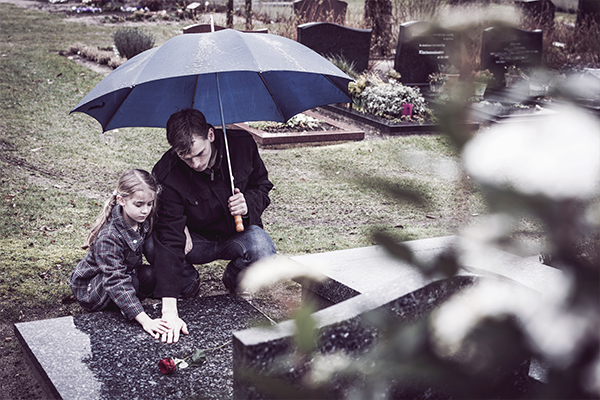Menu
Things no one tells you about losing a parent
Nature's Symphony
Grief is an unpredictable and challenging process, and the grief that comes with the death of a parent can hit especially hard. Despite the fact that we seem to share every detail of our lives on social media these days, the private pain of losing a parent isn't often so easily expressed. Here are a few things no one tells you about losing a parent:
People can forget you’re still grieving - After a few weeks or months, people will stop asking you how you’re feeling. It’s nothing personal, but some people have never been through what you’re going through. They may not understand how long the grieving process is and the pain you’re still feeling. This makes it especially sweet when someone does remember and checks in with you, and is a good reminder to check in with others that you care about when they experience their own losses.
It’s okay to not be okay - You might feel like you need to stay strong for those in your family who are also suffering. But it’s okay to not be okay. You may have a bad day years after the loss, and that’s okay. You may cry when you least expect it. The pain may never go away, but understanding that you can have a bad day and not a bad rest of your life can help bring you some comfort.
Guilt can be heavy - As the years pass, you may feel guilty if you slowly start to forget the small things, like the sound of their voice or details about specific events. Other times, you may feel guilty because you couldn’t take their phone call one time or you weren’t able to be there when you think you should have been. This guilt is normal and happens to many of us. It’s important to give yourself grace and remember that some things you cannot change. We must not forget our happy memories with our parent.
Milestones can be painful - It’s natural that when you lose a parent, they will miss out on certain milestones in your life. Your parent may miss a significant promotion, birthday, wedding, birth of your child or other important day. Remembering what important milestones they were there for is a way to ease the pain. You might even find a way to include them in your special days in the future, such as bringing their photograph or setting aside an empty chair with their name on it.
You will have negative and positive memories - You will probably remember unpleasant memories with your parent, and that’s okay. It’s perfectly normal to recognize the best and worst qualities of your parent. No one is perfect, and it’s okay, and probably healthier to remember someone for the way they were instead of trying to sugar-coat their life.
Jealousy can arise - You might feel jealous of others who still have both of their parents. This is a normal feeling when you have just lost someone so important to you. Remember that we are all on our own journey, and realize that someday they may need your support when their parents pass.
Unresolved conflict - Maybe you and your parent had some unresolved conflict, or things that you deliberately didn't talk about, and now don't have the chance. It can be easy to get "stuck" here and hard to let go of the fact that you weren't able to resolve things with your parent. Sometimes it can help to write letters to them or keep a journal where you express your thoughts and feelings.
Losing a parent is never easy and grief isn’t a predictable process. Remembering the lessons they taught you and the positive memories of life together can bring you some peace, and allow you to help others with this loss in the future.




Subscribe to our newsletter
Warren J. “Ren” Newcomer, Jr. is a licensed funeral director in the states of Kansas and Ohio. Theresa Newcomer is not a licensed funeral director. John Foley, Director of Operations.





